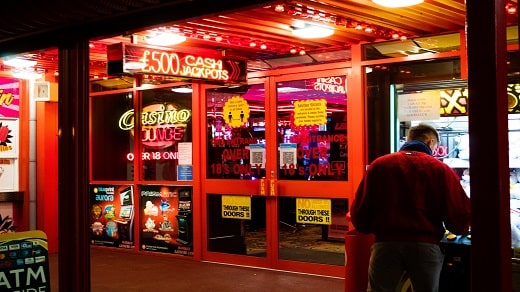Introduction
Over the past few decades, the number of casinos has been increasing in many countries around the world. While casinos are often viewed as a source of entertainment สล็อต888เว็บตรง and a way to generate revenue, they can also have a significant impact on local communities. In this article, we will explore the impact of casinos on local communities, including both positive and negative effects.
Positive impact of casinos on local communities
Economic benefits
One of the primary benefits of casinos is the economic boost they can provide to local communities. Casinos create jobs, attract tourists, and generate revenue through taxes and fees. The jobs created by casinos range from entry-level positions such as dealers and servers to management and administrative roles. According to the American Gaming Association, the casino industry supports more than 1.8 million jobs in the United States alone.
Tourism
Casinos can also attract tourists to a region, bringing in additional revenue for local businesses. Tourists who visit casinos often stay in nearby hotels, dine at local restaurants, and shop at local stores. In some cases, casinos may even partner with local attractions to offer packages that encourage visitors to explore the area. This can result in a significant boost to the local economy.
Revenue for local governments
Another benefit of casinos is the revenue they generate for local governments. Casinos typically pay taxes on their profits, which can provide a significant source of income for local governments. Additionally, many casinos pay fees or make contributions to support local community programs and initiatives. These funds can be used to support schools, public safety, and other essential services.
Negative impact of casinos on local communities
Addiction and gambling-related harm
One of the most significant negative impacts of casinos is the potential for addiction and gambling-related harm. For some individuals, gambling can become a serious problem that leads to financial ruin, strained relationships, and even mental health issues. While many people are able to enjoy gambling in moderation, some individuals may be more susceptible to addiction and may struggle to control their behavior.
Crime
Another negative impact of casinos on local communities is the potential for increased crime. Casinos can attract criminal activity, including theft, fraud, and money laundering. Additionally, the presence of large sums of cash and valuable assets can make casinos a target for robbery or other criminal activity.
Social issues
Casinos can also contribute to social issues within a community. For example, casinos may be seen as a source of moral decay or a negative influence on young people. Additionally, the fast-paced, high-stakes environment of casinos can lead to impulsive behavior, which can have negative consequences for individuals and families.
Environmental impact
Finally, casinos can have a significant environmental impact on local communities. The construction and operation of casinos can lead to increased traffic, noise pollution, and other environmental concerns. Additionally, casinos may be located in areas that are sensitive to environmental damage, such as near water sources or wildlife habitats.
casinos can have a significant impact on local communities, both positive and negative. While casinos can provide economic benefits and attract tourists, they can also contribute to addiction, crime, and other social issues. It is important for local governments and communities to carefully consider the potential impacts of casinos before deciding whether to allow them in their area. By weighing the pros and cons of casinos, communities can make informed decisions about how to best serve their residents and promote sustainable economic growth.
Regulations and mitigation strategies
Given the potential positive and negative impacts of casinos, it is crucial for local governments to regulate and mitigate these effects. One way to do this is through careful planning and zoning. Local governments can designate areas for casinos that minimize negative impacts, such as areas with limited environmental sensitivity or a lower risk of crime. Additionally, zoning regulations can help control the size and scope of casinos, limiting their potential impact on the community.
Another important strategy is to implement responsible gambling policies. Casinos can work with local governments and community organizations to develop programs that promote responsible gambling and provide support for individuals struggling with addiction. This can include education and outreach programs, self-exclusion policies, and problem gambling hotlines.
Finally, local governments can use the revenue generated by casinos to invest in community programs and services that address the negative impacts of gambling. This can include funding for mental health services, addiction treatment programs, and community outreach initiatives.
Conclusion
In conclusion, the impact of casinos on local communities is complex and multifaceted. While casinos can provide significant economic benefits, they also have the potential to contribute to addiction, crime, and other social issues. It is up to local governments and communities to carefully weigh the pros and cons of casinos and implement regulations and mitigation strategies that minimize negative impacts and maximize benefits. By working together, communities can ensure that casinos are a positive addition to their local economy and a responsible source of entertainment for residents and visitors alike.






